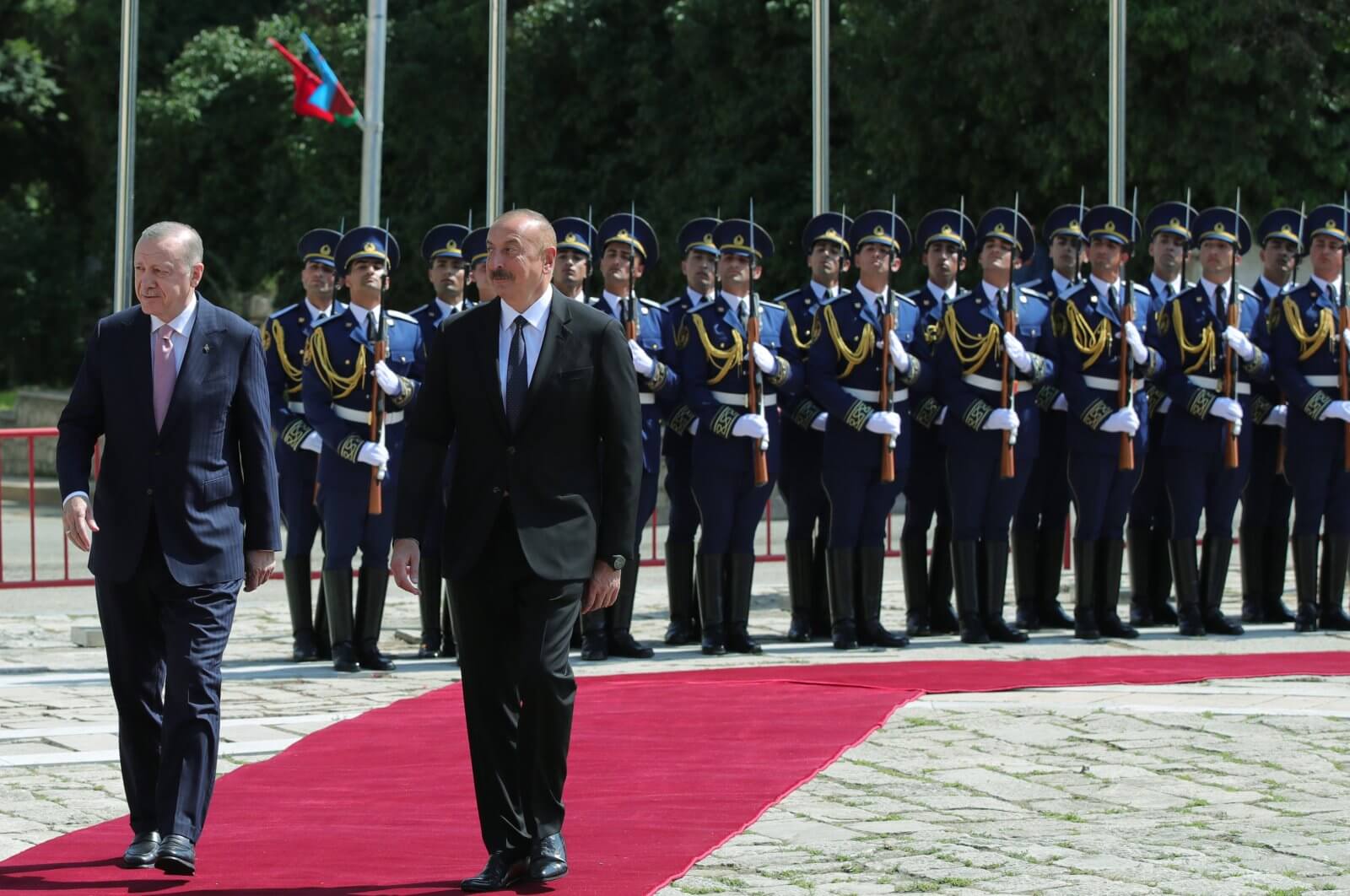Turkish President Recep Tayyip Erdoğan on Tuesday visited the strategically important city of Shusha in Azerbaijan, which was recaptured by Azeri forces during last year’s war with Armenia over the disputed Nagorno-Karabakh region. Armenia has “strongly condemned” Erdoğan’s visit and called it “provocative.”
During a press conference held in Shusha with Azerbaijani President Ilham Aliyev, Erdoğan vowed to “support Azerbaijan’s efforts for reconstruction” in Shusha and Nagorno-Karabakh. He said, “While making up for the destructions, we, together, will also be taking necessary measures to prevent the reoccurrence of a similar catastrophe in Karabakh and Azerbaijani lands.”
The Turkish President called on Armenia to seize the “new opportunities of cooperation that have emerged in the region for all parties,” following the ceasefire agreement signed last year to end the conflict. Erdoğan stressed that Turkey would continue to do its part to achieve “normalisation” between the two foes. “We believe that this promising process will advance in a much more reliable manner if Azerbaijan and Armenia crown their ceasefire agreement with a comprehensive and visionary peace agreement,” he said.
Aliyev said Erdoğan’s visit to Shusha was “significant,” as it “raises our relations to the highest peak.” Aliyev also welcomed the signing of the Shusha Declaration on allied relations between Azerbaijan and Turkey. The Declaration, which focuses on defence ties and establishing new transport routes, is expected to bolster the Turkey-Azerbaijan strategic relationship.
Meanwhile, a statement released by the Armenian Foreign Ministry called the visit “an outright provocation” against the peace and security in the region. “It is noteworthy that this visit preceded the destruction of the religious, historical, and cultural heritage of the forcibly displaced indigenous Armenian population […] by Turkish-Azerbaijani forces during and after the war against Artsakh [Nagorno-Karabakh],” the ministry said, adding that “Such actions […] significantly undermine the international efforts to establish stability in the region and are utterly unacceptable.”
Erdoğan's visit to Shusha comes as tensions between Armenia and Azerbaijan have been escalating along the disputed border area. In May, Armenia accused Azerbaijan of sending troops into its territory of Syunik and Gegharkunik to take up strategic positions. Last week, Azerbaijan claimed that its forces had detained an Armenian “saboteur” for trying to plant land mines in Azerbaijan-controlled territory along the border.
Turkey played a crucial role in Azerbaijan’s victory over Armenia during the brutal 44-day war over Nagorno-Karabakh in 2020. Azerbaijan depended on Turkish drones to establish air superiority against Armenia and destroy its missile defences. As per reports, Turkey’s military exports to Azerbaijan surged before hostilities with Armenia began last year. Additionally, Turkish and Azerbaijani troops had also conducted extensive military drills before the conflict.
Armenia and Azerbaijan are engaged in constant conflict over the breakaway region of Nagorno-Karabakh since the fall of the Soviet Union. The war between ethnic Armenians and ethnic Azerbaijanis in the disputed territory lasted till around 1994, with both Baku and Yerevan continuing to hold claims over Nagorno-Karabakh. The situation worsened in the early 90s when the Autonomous Oblast of Nagorno-Karabakh voted to join Armenia, increasing violence and displacing thousands by 1992. The most recent flare-up occurred on September 27 and led to the worst clashes in decades, killing thousands and displacing more than 100,000 people.
Armenia Condemns Erdoğan’s Visit to City Recaptured by Azerbaijan in Nagorno-Karabakh War
Erdoğan visited the city of Shusha, which was recaptured by Azerbaijan from Armenia in the 2020 Nagorno-Karabakh war. Armenia condemned the move and called it a provocation.
June 16, 2021

Turkish President Recep Tayyip Erdoğan with his Azerbaijani counterpart Ilham Aliyev in Shusha, June 15, 2021 SOURCE: ANADOLU AGENCY
